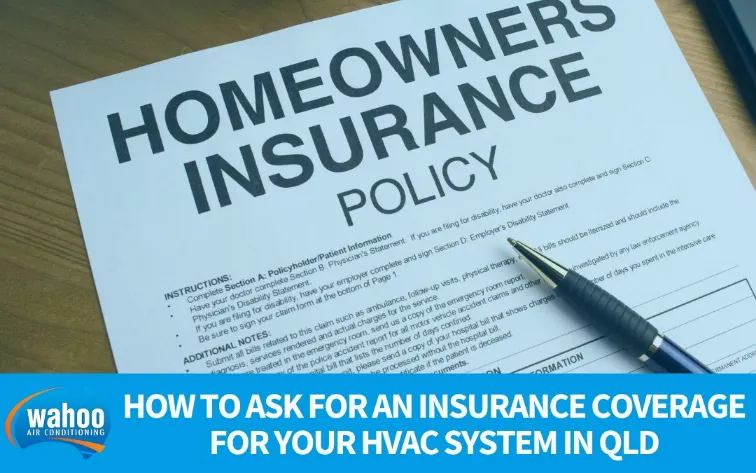
What Is An HVAC System And Why Would You Want Insurance Coverage For It
Have you ever wondered what an HVAC system is and why you might want insurance coverage for it?
An HVAC system, or heating, ventilation and air conditioning system, is responsible for controlling the temperature and humidity of a building or home. It also filters the air to remove pollutants.
So why would you want it insured?
If something goes wrong with your HVAC system, it can be expensive to repair or replace. That’s why it’s a good idea to have insurance coverage for your HVAC system. Coverage can help protect you from the cost of unexpected repairs or replacements.
So how do you know if your HVAC system is insured? Talk to Wahoo Air Conditioning today and let us help you with this.
How Does The Insurance Process Work When It Comes To HVAC Systems
If you’re an HVAC system owner, it’s important to be aware of the insurance process in case something goes wrong. Typically, your insurance company will send out a claims adjuster to assess the damage and determine how much coverage you have. From there, they’ll work with you to get the repairs done as quickly and efficiently as possible.
Keep in mind that some damages may not be covered by your policy, so be sure to read through your terms and conditions carefully. In any case, it’s always important to have a clear understanding of the insurance process. This way, you know what to expect in a worst-case scenario.
What Are Some Of The Benefits Of Having Insurance Coverage For Your HVAC System
It’s no secret that HVAC systems play an important role in keeping our homes and offices comfortable. But what many people don’t know is that having insurance coverage for your HVAC system provides several benefits, from extending the life of your system to reducing energy costs.
If you’re considering purchasing insurance for your HVAC system, here are some of the things you can expect to gain:
- Peace of mind knowing that you’re protected if something goes wrong with your system.
- Coverage for repairs and replacements, so you don’t have to worry about paying for them out of pocket.
- Protection from unexpected costs, such as replacement parts or labour fees.
- Coverage for damages caused by weather-related events
You may not be aware of all of these benefits of having insurance for your HVAC system. Call us and let’s discuss how you can enjoy these too.
How Much Would It Cost To Insure Your HVAC System
Are you one of the many people who assume that your HVAC system is automatically insured? If so, you may be surprised. Many homeowners are not aware of the fact that their insurance policy likely does not cover damage to their HVAC system. So, you may need to get supplemental insurance for your HVAC system.
When it comes to the cost of getting your HVAC system insured, it will vary depending on your insurance provider. Therefore, it’s important to discuss and review the coverages and costs of the insurance you got with your provider.
Who Can Help You Get Insurance Coverage For Your HVAC System In QLD
You’ve probably heard that it’s important to have insurance coverage for your home, car, and other possessions. But what about your HVAC system? If something goes wrong with your heating or cooling system, you could be looking at a hefty repair bill.
That’s why it’s important to make sure you have insurance coverage for your HVAC system. So, whether you’re in QLD or nearby areas, don’t hesitate to contact us. We’ll help check if your HVAC system is covered by your policy.
